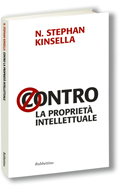“Pryor and four teammates were suspended Thursday by the NCAA for the first five games of next season for selling championship rings, jerseys and awards. They also received improper benefits — from up to two years ago — from the tattoo parlor and its owner.”
~ Article at ESPN.com
The situations of Ohio State University Quarterback Terrelle Pryor, leading rusher Dan Herron, No. 2 wide receiver DeVier Posey, All-Big Ten offensive tackle Mike Adams and backup defensive end Solomon Thomas should be pretty well known to the sports fans in our studio audience. The sports airwaves have been chock-full with commentary on it for the last few days. From a sports reporting standpoint, the coverage has often been quite good and pretty far ranging. ESPN generally, and Pat Forde and Adam Rittenberg specifically, have covered the issue and the rather obvious duplicity of the NCAA in some detail. For the overarching view of the issues, I recommend those columns. To get an impression of my view of the duplicity of the NCAA, I highly recommend this video from Michael Smith. Smith and I agree completely, the NCAA was duplicitous in its application of sanctions against these players and against The Ohio State University. But there is more to it than that, and it is upon those differences that I will focus in this brief rant.
To make a long story short, and save the reader from wading through the MSM reporting, here is the synopsis. These players sold and/or bartered with items and notoriety they had been given or “earned” in their capacity as football players at The Ohio State University. Those benefits included both cash and services, in the fashion of tattoos from a local tattoo parlor in Columbus. (No, I’m not making this up.) They have been found guilty of “receiving improper benefits.” Their punishment is: being suspended for five games next football season. They will all compete in the Sugar Bowl this season. (No, you didn’t misread anything. That is exactly what is happening.)
There are really only two issues of interest from my libertarian perspective. First is the issue of ownership and its privileges. One would hope that rules imposed by the NCAA would somehow reflect an understanding of private property ownership. Let us call that Standard One. Secondly, there is the issue of rules and regulations. If there is a rule in place that circumvents my ownership, e.g., an agreement, either implicit or definitive, that I will not receive “benefits” from ownership until such time as said agreement is no longer in place, what punishment fits the “crime” of breaking that contract? One would hope that penalties levied by the NCAA would reflect some understanding of punishment that fits the crime in the most obvious sense. Let us call that Standard Two.
These are the only questions that exist in the Ohio State Affair, or Tattoo Gate, as I will hereafter refer to it. As anyone who has witnessed the amazingly transparent actions of the NCAA over the last few months can attest, what can be generally said about the imposition of NCAA sanctions is this: The NCAA generally opts for a punishment that fails to meet either standard. This case is no different. In fact, Tattoo Gate is an object lesson in how to be damned certain that one’s actions meet no discernible standard at all.
If a person owns an item, the disposition of that item should be the business of that owner only. In short, he can do whatever he wishes with it, including, but not limited to, sell it, give it away, bury it in the back yard, or burn it for warmth. The obvious (read: statist) exception of intellectual property aside, this seems pretty straightforward. Clearly then, something else must cover the case of NCAA athletes. This is where Standard Two comes in. The NCAA apparently believes, and I’ll even agree with them for arguments sake, that the “contract of scholarship athleticism” precludes actions that might otherwise be appropriate for an owner of real property such as a championship ring or other soon-to-be-useless whatnottery. Tattoo Gate is not about ownership. Tattoo Gate it is about rules.
So then, a scholarship athlete cannot sell NCAA-sanctioned trinkets while participating in NCAA activities and/or while maintaining eligibility. To do so constitutes the receiving of improper benefits and is justification for punishment. Clearly, the players in question broke the rules. Just as clearly, imposing a sanction of five games—approximately one-third of a college football season—is a hefty penalty. Why then would the NCAA impose the penalty next season, effectively allowing the players and the team to benefit from their presence in a (high-profit-generating) bowl game? That’s a very good question, and a question that no one seems able to answer.
If the infractions were egregious enough to warrant a large penalty—like five games—it would seem to warrant immediate imposition of said sanctions. If it the infraction is minor enough to allow for imposing a sanction that won’t take place until next season (when at least two or three of those players could be gone to the NFL) it would also seem to not be worth mentioning.
What the NCAA has done, effectively, is harshly punish while simultaneously not punishing. That’s an elegant implementation of justice and a fine example of what those of us who watch the actions of the NCAA have known for quite some time: The NCAA is, in the vernacular, FOS. (That means, loosely translated: Full of Feces.) Of course, many of us knew that before Tattoo Gate. Didn’t you?


